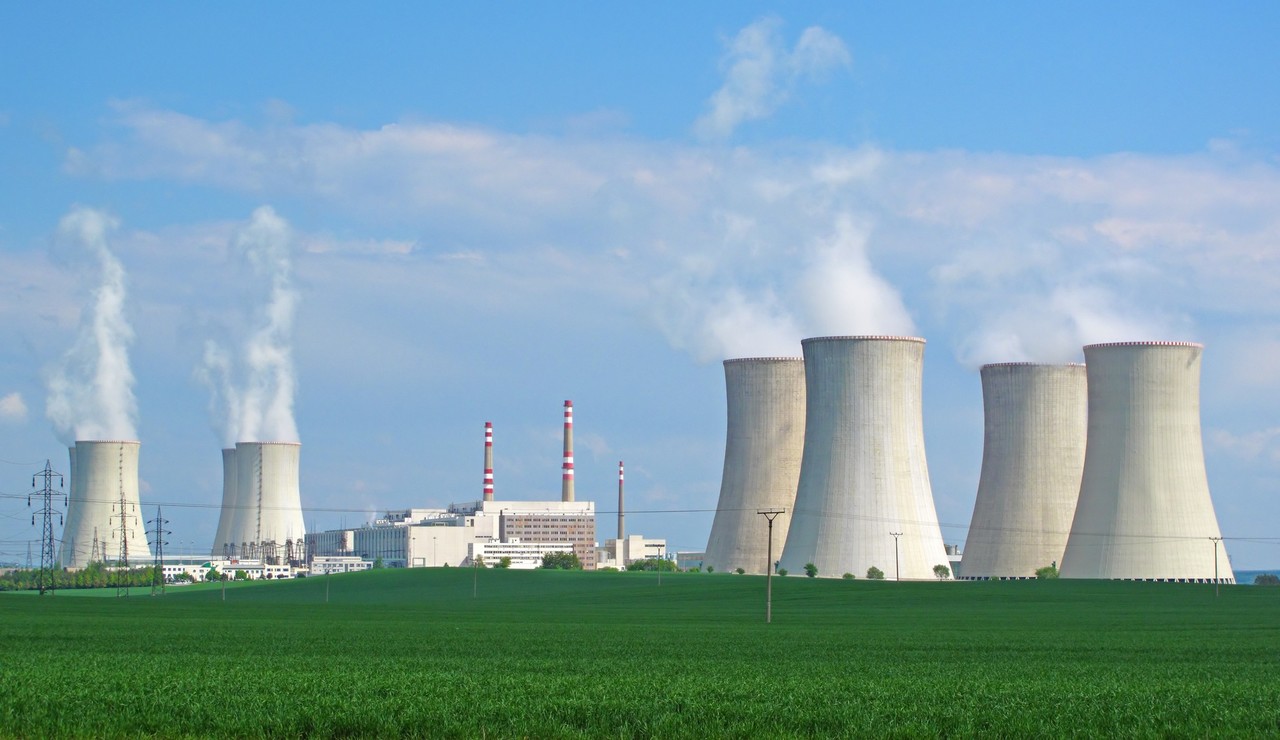19.3 Nuclear power
Nuclear power covers approximately 5 % of the global energy production. However, approximately one fifth of the total Finnish energy production comes from nuclear power plants located in Loviisa and Eurajoki. There are currently plans to construct additional nuclear reactors in Olkiluoto and Pyhäjoki.
Nuclear powerproduces energy by splitting the cores of uranium atoms in a process known as fission. This process releases heat that is used to warm up water, which in turn creates vapor that runs a turbine. Although the process itself is relatively simple, the radioactivity of the fuel used and the isotopes produced during the process create a number of technical challenges for nuclear power plants.
Nuclear power has many advantages. The production of nuclear energy is both efficient and stable, which means that it not reliable on external processes such as weather. As a result, the price of nuclear energy is always the same. Unlike fossil fuels, nuclear energy does not release combustion gases such as carbon dioxide. This is one reason why nuclear power is often championed as the answer to the planet's energy needs.
However, nuclear power also has its disadvantages. First, uranium is a relatively rare element in bedrock. Second, uranium is also a radioactive element. This means that uranium atoms have a tendency to break off by themselves, which can release harmful radiation into the environment. Nuclear power also has a risk of nuclear accidents, which can be devastating for the areas that are located near nuclear power plants.

Nuclear power produces energy by splitting the cores of uranium atoms in a process known as fission.
Nuclear powerproduces energy by splitting the cores of uranium atoms in a process known as fission. This process releases heat that is used to warm up water, which in turn creates vapor that runs a turbine. Although the process itself is relatively simple, the radioactivity of the fuel used and the isotopes produced during the process create a number of technical challenges for nuclear power plants.
Nuclear power has many advantages. The production of nuclear energy is both efficient and stable, which means that it not reliable on external processes such as weather. As a result, the price of nuclear energy is always the same. Unlike fossil fuels, nuclear energy does not release combustion gases such as carbon dioxide. This is one reason why nuclear power is often championed as the answer to the planet's energy needs.
However, nuclear power also has its disadvantages. First, uranium is a relatively rare element in bedrock. Second, uranium is also a radioactive element. This means that uranium atoms have a tendency to break off by themselves, which can release harmful radiation into the environment. Nuclear power also has a risk of nuclear accidents, which can be devastating for the areas that are located near nuclear power plants.

Nuclear power produces energy by splitting the cores of uranium atoms in a process known as fission.